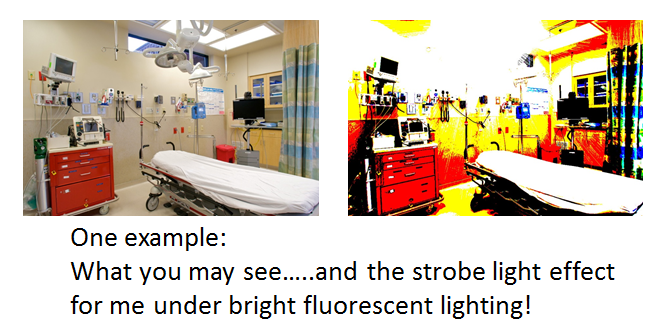Are you a GP?
Do you yearn to know more about the 1 in 30 fabulous autistic people who attend your Practice, or the 1 in 30 fabulous GPs & other colleagues who are autistic?
Get thee to the @RCGP and ask what& #39;s what with training.
Meantime, here& #39;s a quick brief for you (thread/)
Do you yearn to know more about the 1 in 30 fabulous autistic people who attend your Practice, or the 1 in 30 fabulous GPs & other colleagues who are autistic?
Get thee to the @RCGP and ask what& #39;s what with training.
Meantime, here& #39;s a quick brief for you (thread/)
First, all academic and practical references can be located at http://annsautism.blogspot.com/2019/01/autism-some-vital-research-links.html
Yes,">https://annsautism.blogspot.com/2019/01/a... it& #39;s 1 in 30.
All ages, genders, sexualities, ethnicities, backgrounds, IQs.
It& #39;s a different social communication system, and a different sensory system/
Yes,">https://annsautism.blogspot.com/2019/01/a... it& #39;s 1 in 30.
All ages, genders, sexualities, ethnicities, backgrounds, IQs.
It& #39;s a different social communication system, and a different sensory system/
Autistic people spend our lives balancing how much input our brains can handle at once. Sensory input, social input from non-autistic people, etc.
If we get the balance wrong, our brains can enter a brain event of shutdown, or (for some) meltdown.
So, advance planning is vital/
If we get the balance wrong, our brains can enter a brain event of shutdown, or (for some) meltdown.
So, advance planning is vital/
Too many unknowns, and (for a good few of us) our ability to communicate effectively can be disrupted, which isn& #39;t handy during consultations.
So, we need to think about asking what will help, and recording their answers accurately on the systems/
So, we need to think about asking what will help, and recording their answers accurately on the systems/
...and ensuring those answers are respected.
What helps with planning the visit? Maps, parking info, photos, where to sit, what hellish lighting is involved, etc? Our experience of your clinic may not be your experience: /
What helps with planning the visit? Maps, parking info, photos, where to sit, what hellish lighting is involved, etc? Our experience of your clinic may not be your experience: /
Is this important to know? Oh yes.
Looks like autistic people are at severe risk of any number of poor health outcomes (physical or mental) from not being able to access...
Info
Appointments
The waiting room
The consultation, etc.
Vital we work together to resolve this/
Looks like autistic people are at severe risk of any number of poor health outcomes (physical or mental) from not being able to access...
Info
Appointments
The waiting room
The consultation, etc.
Vital we work together to resolve this/
So many autistic adults don& #39;t even know they& #39;re autistic, and nor do their medical teams. So they end up with a list as long as your stethoscope of misdiagnoses, e.g. personality disorders, as well as an increasing list of MH conditions such as anxiety & depression/
Being able to access a diagnostic process is such an important step. For others, having info on autism so they can self-identify is a way to seek their peers and learn more about their needs & what helps.
Very few women, older people & BAME individuals are identified as autistic/
Very few women, older people & BAME individuals are identified as autistic/
...and given huge numbers who want to end their life, because life quality is so bad, we need to put better support in place.
That starts with working with the autistic specialists, trainers and teams, to get authentic training & buildings evaluation/
That starts with working with the autistic specialists, trainers and teams, to get authentic training & buildings evaluation/
Teams who work with allies to improve outcomes for the individuals, and of course the GP Practices also.
Training teams. Ensuring buildings are accessible. Providing info.
There are teams already working with the NHS on elements
@NDTicentral
@AT_Autism
@AFNCCF amongst others.
Training teams. Ensuring buildings are accessible. Providing info.
There are teams already working with the NHS on elements
@NDTicentral
@AT_Autism
@AFNCCF amongst others.

 Read on Twitter
Read on Twitter


